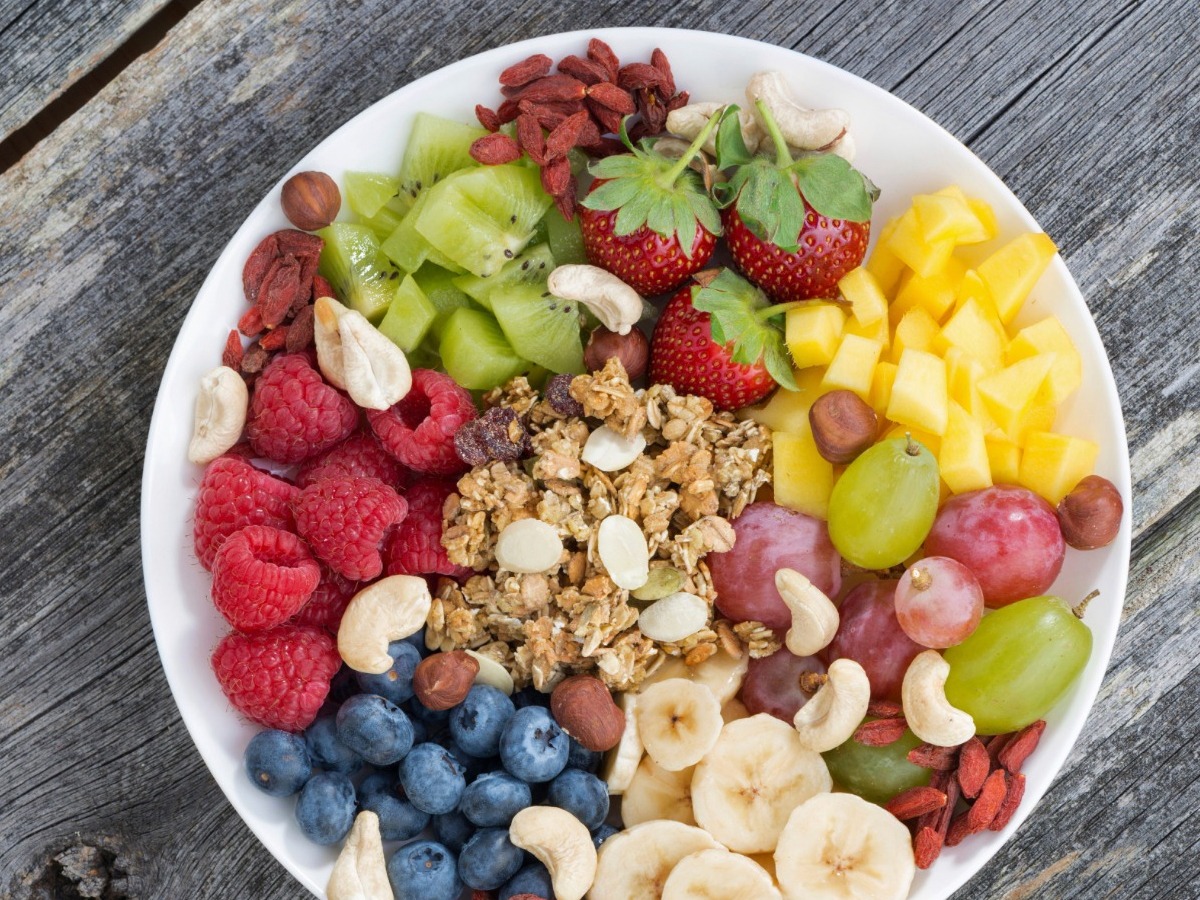Oprah Winfrey is one of the most recognized faces in the world, yet she’s managed to keep her personal life private, only giving glimpses of what she chooses to reveal—like envy-worthy travels with her bestie Gayle King or dinners with famous friends. But, one thing she has been open about and shares publicly is her weight loss journey, which she’s struggled with for decades. The talk show queen has always been candid with the challenges she’s endured to maintain her weight and has tried countless diets over the years. After many unsuccessful attempts, the media mogul turned to Weight Watchers and lost 40 pounds. She’s kept the weight off by healthy lifestyle choices, including walking, which she credits for helping keep the weight off. In fact, just this week she shared a video of her “walking off” a big meal. Here’s how walking and hiking can help with weight loss management and advice from health experts on getting started.
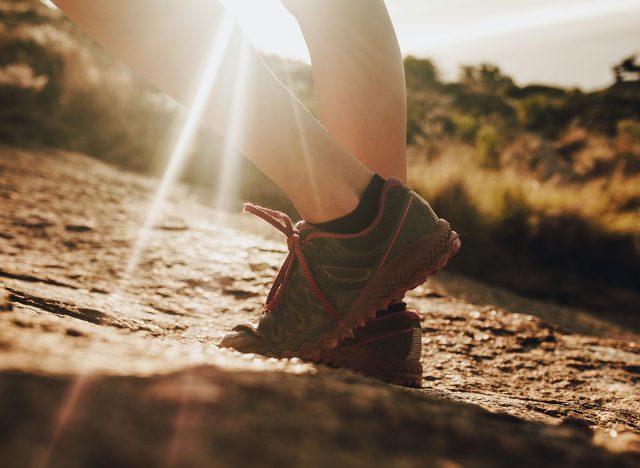

In a recent Instagram post, Oprah shared how she was in New Orleans attending a festival and made time for a workout. “Back to walkin’ off some of that gumbo,” she wrote. Experts say walking is a great way to keep off weight for several reasons. “It is typically easier on the joints and can help you burn many calories over time,” Jesse Feder, RDN, CPT, with My Crohns and Colitis Team, says. “It is an activity almost anyone and everyone can do. Additionally, it is something that can be performed every day.” Certified fitness instructor and coach Nadia Murdock adds, “These activities usually take place outdoors; this is one of the number one benefits of this form of exercise. Being in nature and outside allows you to reset, clear your mind, and connect your mind and body. In addition, it helps with your mental health and brain health. Fresh air can raise your oxygen levels, which raises your serotonin levels, a neurotransmitter known to elevate your mood.”


Achieving weight loss with walking and hiking is very attainable because “when you are walking and hiking, you’re focusing on the larger muscle groups found in your lower body,” Murdock explains. “Inclines in your walks and hikes help to build muscle which helps to burn fat.” It’s also a great way to burn calories. “Walking and hiking can lead to weight loss because they both burn numerous amounts of calories,” Adrian Todd, a licensed occupational therapist and hiking coach tells us. “While walking and hiking alone will not necessarily cause weight loss. If you are on a diet that is putting your body in a caloric restriction then walking and hiking will definitely help the body fat melt.”


As much as we’d like to see results after a hike or two, that’s not going to happen. Consistency and dedication are key. Todd says, “In general I often believe walking or hiking about 7,500 to 10,000 steps a day is when you will see the most benefits for fat loss. If you are walking or hiking for muscle building or just for the benefits of being outside. I recommend just going 3-10 miles maybe about 2-3 times a week. It really kind of depends on the person.” The type of hike and walk makes a difference Murdock explains. “Pace, incline and even additional props like a weighted vest or ankle weights can make a difference in your results. You can see results with 1-2 weekly hikes if you truly challenge yourself. Being honest with yourself regarding your education level will help you achieve your goals. That’s the beautiful part about this form of exercise: you can make it your own but have to hold yourself accountable.”
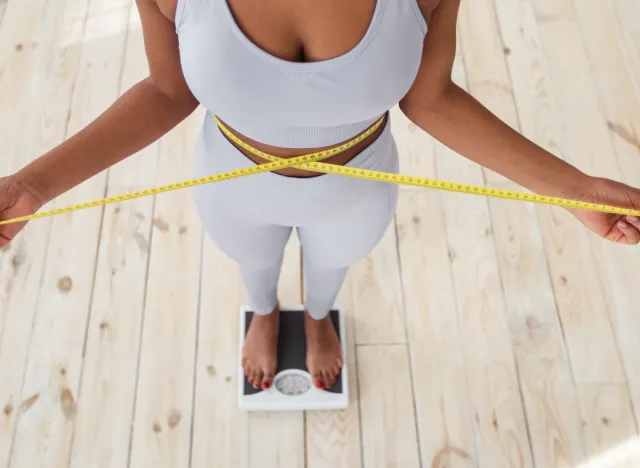

Everyone is different so there’s no definite answer on how much weight you will lose, but positive results are likely. “It’s important to remember nobody is the same,” Murdock states. “So many additional factors must be considered, such as additional activities, nutrition, hydration, stress, and sleep. You will undoubtedly notice an increase in endurance, muscle, and strength.” Todd adds, “If someone is combining walking/ hiking with a significant caloric deficit of say about 300-500 calories a day. Then over time, it is not uncommon to see someone lose 10 or so pounds in 3 to 6 months.”
READ RELATED: Impact Of IVF: How Assisted Reproductive Technologies Have Transformed Family Building?
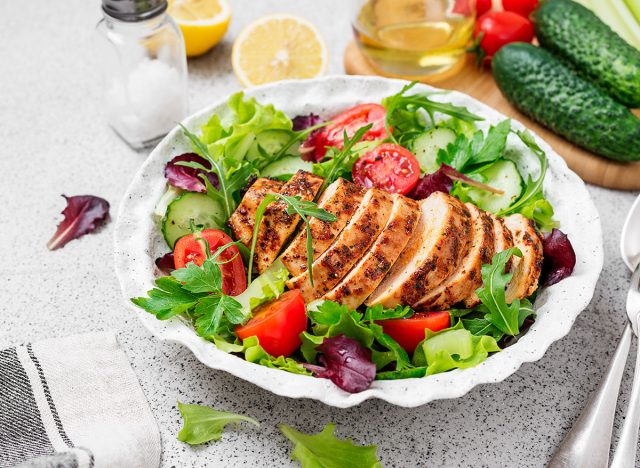

If you’re staying active, but eating junk you’re not going to get the results you want. “Diet is a huge driver of losing weight,” according to Todd. “Exercising like walking/hiking helps due to increasing calorie expenditure. But the best combination is both exercise and diet. For example, I could go hiking/walk miles daily but if right after I go and eat and put myself back in a calorie surplus then I will most likely not lose fat.” “It’s always a good idea to observe and alter your nutrition as needed to reach your wellness goals,” Murdock says. “If you are being more active, you should always hydrate more and ensure you get a decent amount of protein to help with energy, metabolism, and muscle repair. Nutrition and exercise go hand in hand to see actual results.”


Oftentimes getting started is the hardest part, but here’s how you can get in the right mind frame to kick off your health goals. “Pair this exercise with a habit you already have in place,” Murdock suggests. “For example, if you regularly listen to podcasts and/or audible books, add them to your hike and walk. If you have a set time to talk to a friend, turn that talk into a walk and talk. If you love to strength train, create a routine where you walk a mile and then do a few bodyweight exercises every mile. Make it your OWN!” Feder adds, “I typically tell people to try a few different things if they are not a fan of walking/hiking. You can switch up the time, place, pace, and duration of your activity if things seem boring. Additionally, I remind people that they do not have to walk on a treadmill or inside the gym. They can go out into nature and discover different trails and areas of their town. I think it is all about keeping things fresh and interesting.”
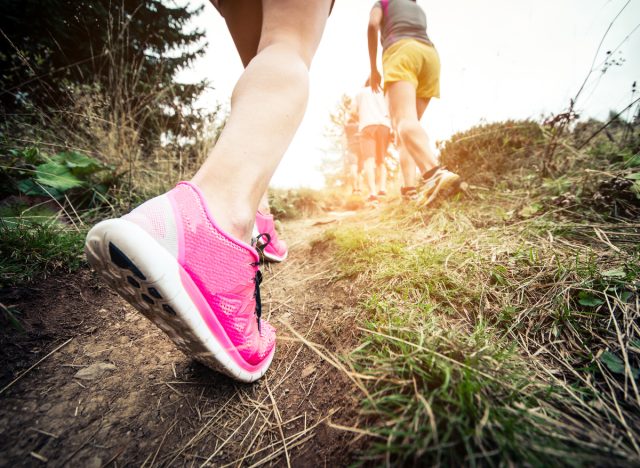

It can be a challenge to get motivated and Murdock says, “Being held accountable is so important! Encourage a friend to join you for a walk or join a meetup group. You can even sign up for a marathon/walkathon that you can train for. Working towards a big goal is a huge motivator.”
Heather Newgen


